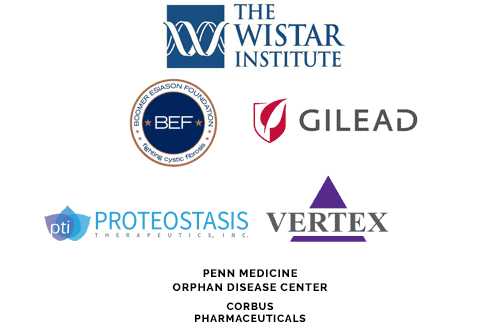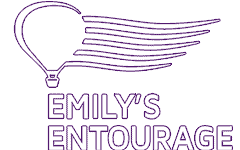RECAP : Le symposium sur l'EE aborde les principaux obstacles et les stratégies pour accélérer les progrès dans le domaine des mutations non sens de la fibrose kystique.
Emily’s Entourage (EE) held its third scientific symposium, Développement thérapeutique pour les mutations non-sens : La dernière frontière de la FK, on September 25 at The Wistar Institute in Philadelphia, PA. The singular focus was to accelerate breakthroughs and a cure for the final 10% of the cystic fibrosis (CF) population without a targeted therapy with a focus on nonsense mutations.
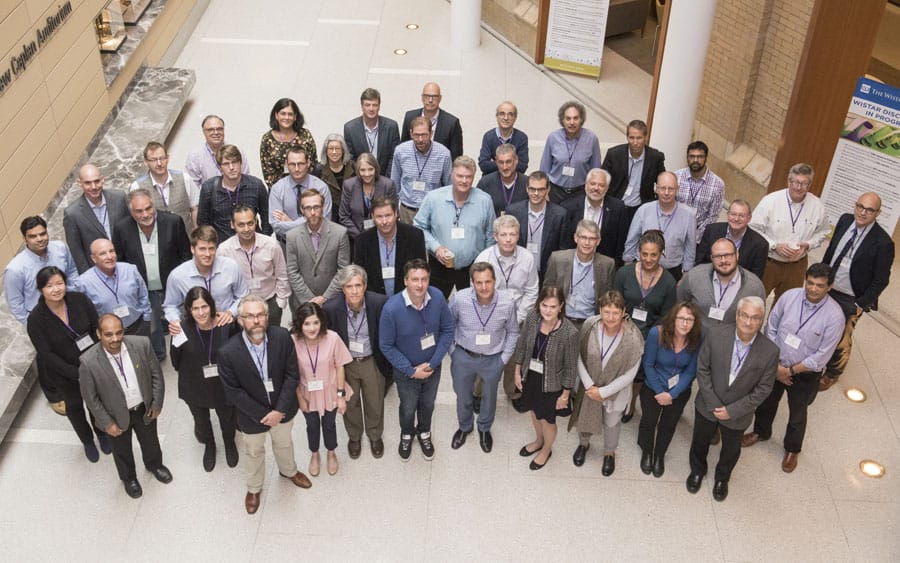
Over 47 preeminent CF researchers and companies from around the world gathered to exchange ideas to expedite the development of life-saving therapeutics for those with nonsense mutations of CF. While game-changing CFTR modulating therapies are currently approved or in late-stage clinical development for roughly 90% of the CF population, those with nonsense mutations of CF represent the largest portion of the outlying 10% of the CF population.
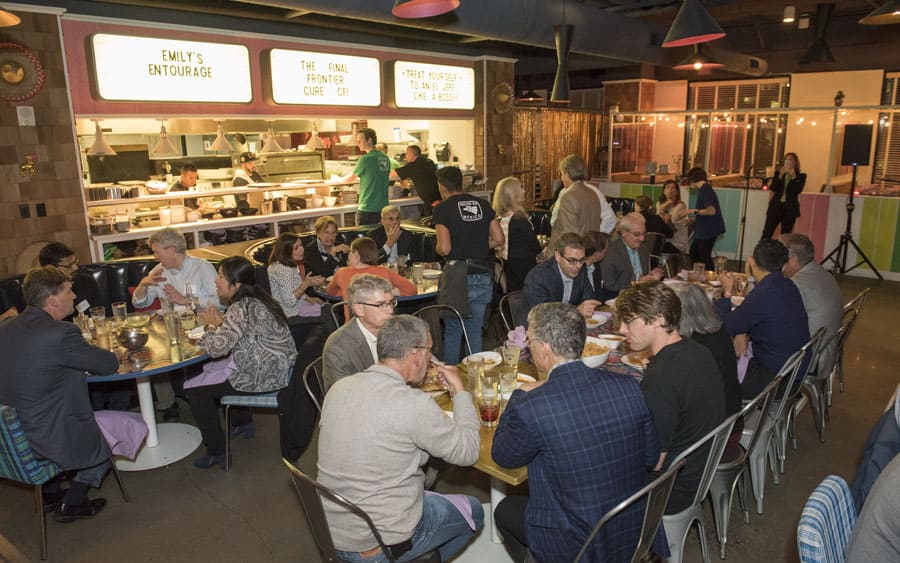
The symposium began with a welcome dinner the night prior where guests were warmly received by EE Scientific Advisory Board Chair, Kevin Foskett, PhD, EE Scientific Director, Pete Haggie, PhD, and Emily at Distrito in University City. Academics and industry professionals mingled and shared goals in a relaxed setting over a delicious Mexican dinner.
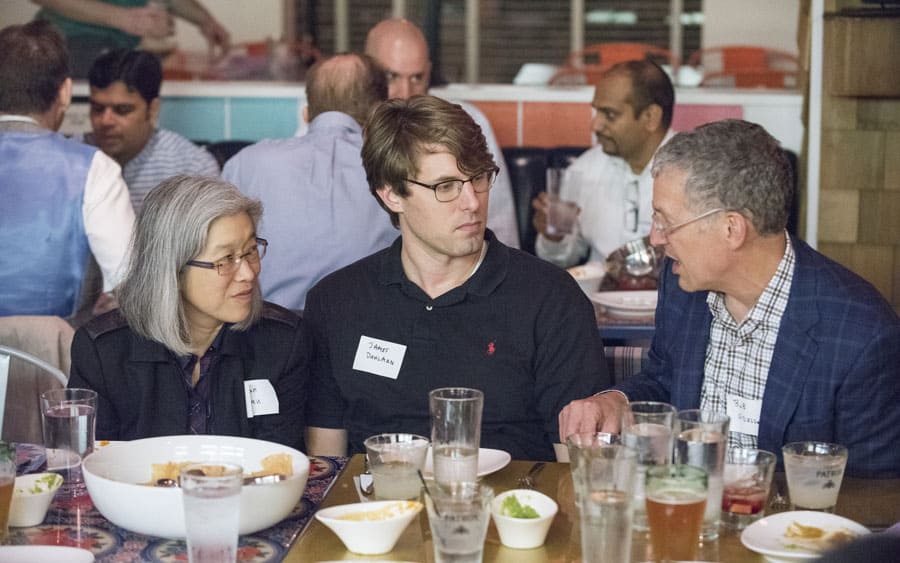
On September 25, Emily opened the symposium with welcoming remarks. She presented the 2018 Campaign Video to introduce EE’s overall mission and humanize the meeting’s urgency. Following Emily’s remarks, the hard scientific work commenced in four distinct sessions.
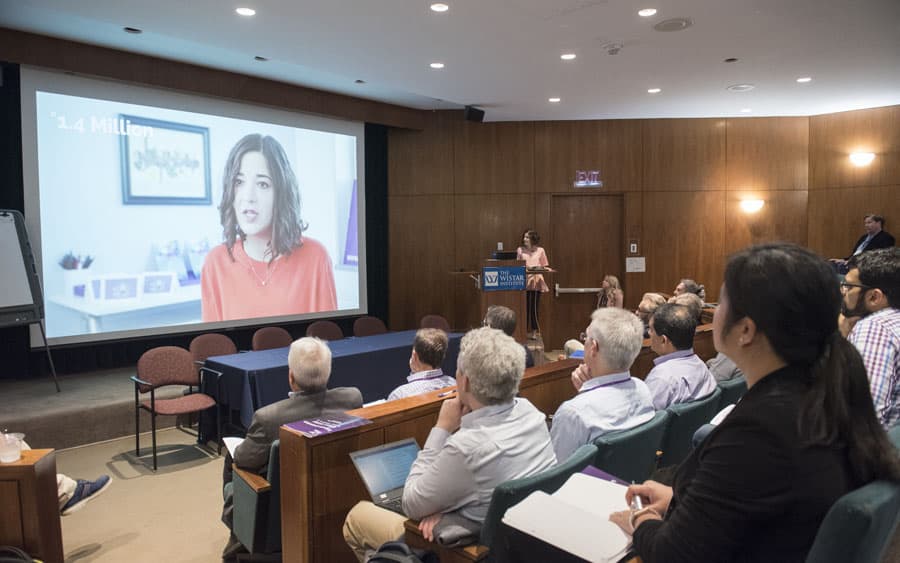
Each session was broken down into two main components. The first component focused on formal presentations given by researchers from academia and industry speaking primarily on key progress they have made, new data they have generated, and any specific hurdles affecting their ability to move forward. The second involved presenters and experts sitting at the front of the audience to facilitate discussion with the entire room. These discussions were spirited, productive and integral in generating the necessary next steps for progress.
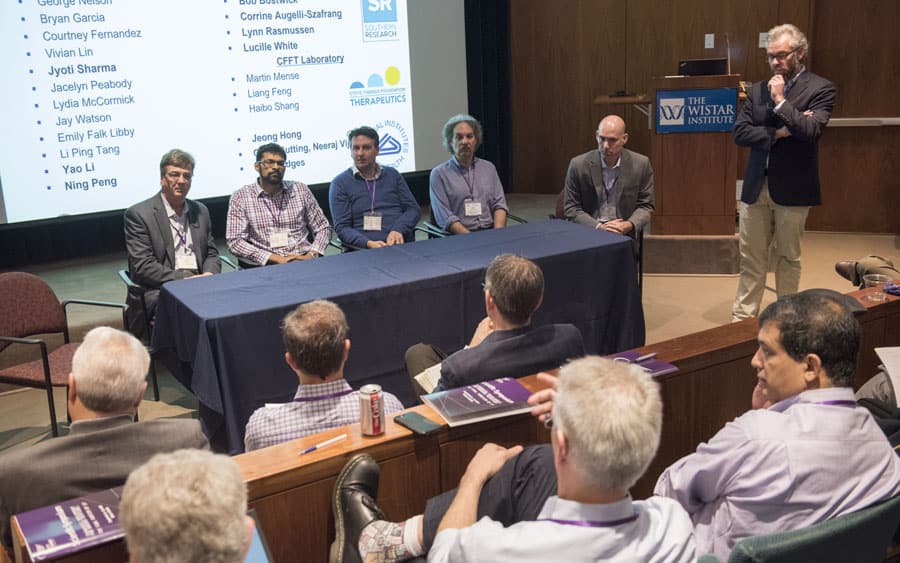
I. CFTR Modulators: Developing, adapting and testing modulators for truncated CFTRs
Session I consisted of four speakers covering methods to directly modulate CFTR gene activity. These methods would target the truncated form of CFTR that is generated by the premature termination in nonsense mutations, and would facilitate read-through of the gene to generate the full-length protein.
Presenters:
Alan Verkman, MD, PhD (Université de Californie, San Francisco)
Neal Sharpe, PhD (Eloxx Pharmaceuticals)
Jeffrey Beekman, PhD (Centre médical universitaire, Utrecht, Pays-Bas)
Steven M. Rowe, MD, MSPH (Université de l'Alabama à Birmingham)
II. CFTR Gene Therapy: Progression to Phase I trials
Session II focused on genetic approaches – either using gene therapy to replace CFTR, or gene editing to repair the CFTR gene. These approaches would be effective for CFTR nonsense mutations, but, importantly, they could also be applied to all CFTR mutations, making them mutation agnostic.
Presenters:
Paul McCray, MD (Université de l'Iowa)
Patrick Harrison, PhD (University College Cork, Irlande)
III. Nucleic acid therapies: Delivering mRNA, tRNA and oligonucleotide-targeted approaches
Session III focused on aspects of CF therapy that target nucleic acids, including transfer and messenger RNA.
Presenters:
Christopher Ahern, PhD (Université de l'Iowa)
Lulu Huang, PhD (Ionis Pharmaceuticals)
James Dahlman, PhD (Georgia Tech)
John Miller, PhD (Proteostasis Therapeutics)
IV. Buying time: Alternative targets and approaches
Session IV concentrated on alternative approaches that could buy time for patients with nonsense mutations of CF. These approaches would not target the CFTR gene directly, but instead lessen the damage in the lungs as the disease progresses to serve as a bridge until more transformative therapies emerge for those with nonsense mutations of CF.
Presenters:
Robert Tarran, PhD (Université de Caroline du Nord à Chapel Hill, Spyryx Biosciences)
Oren Rosenberg, MD, PhD (Université de Californie, San Francisco)
Barbara White, MD (Corbus Pharmaceuticals)
Martin D. Burke, MD, PhD (Université de l'Illinois Urbana-Champaign)
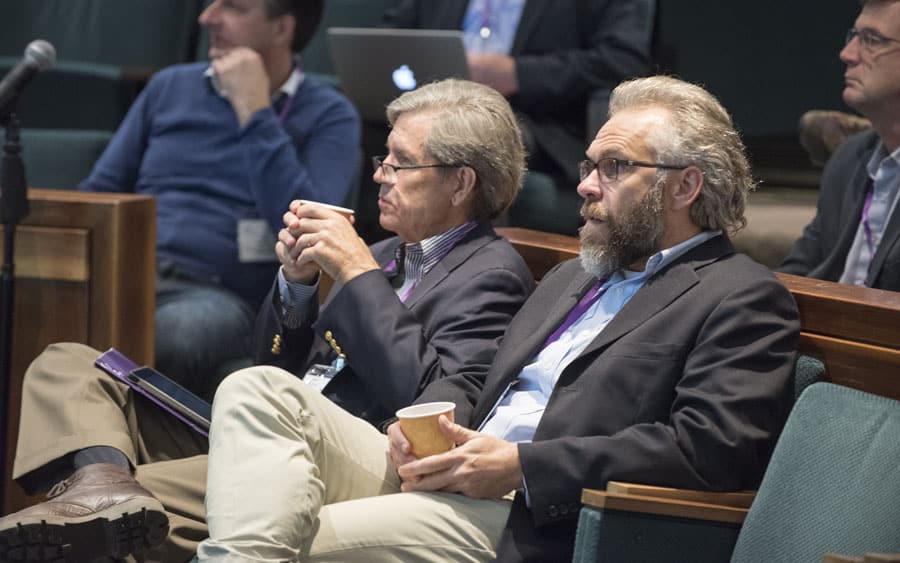
The organization of the symposium allowed for an intimate, collaborative environment where people could speak freely. And through individual discussions, it became clear there is significant interest in and commitment to developing therapies for nonsense mutations of CF.
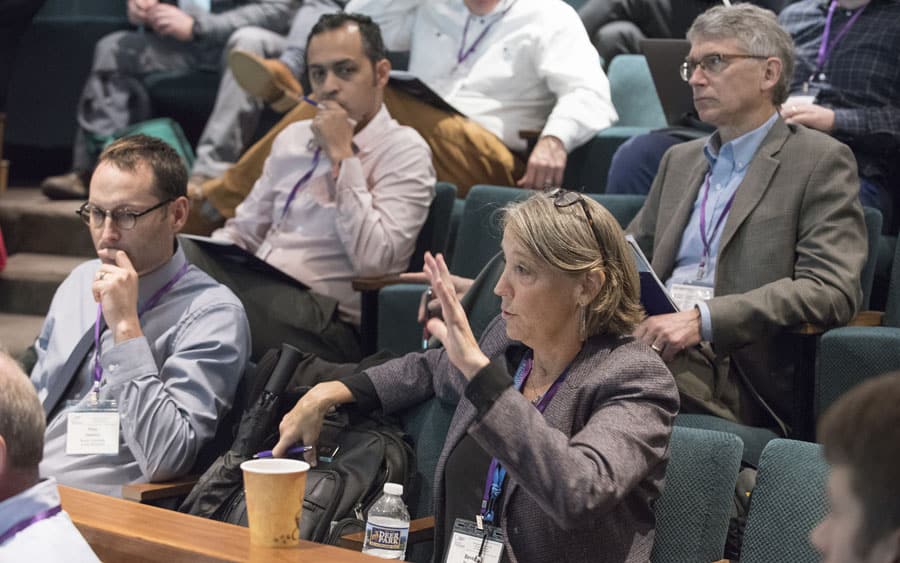
The symposium reinforced this need for new CF therapies for those with nonsense mutations and facilitated this endeavor by expediting partnerships and collaborations.
Emily’s Entourage would like to extend heartfelt gratitude to all symposium speakers, attendees, and sponsors. The energy during the symposium was palpable. It felt extremely hopeful experiencing the openness, collaboration, and fierce commitment to the nonsense mutation CF community from everyone in the room.
